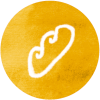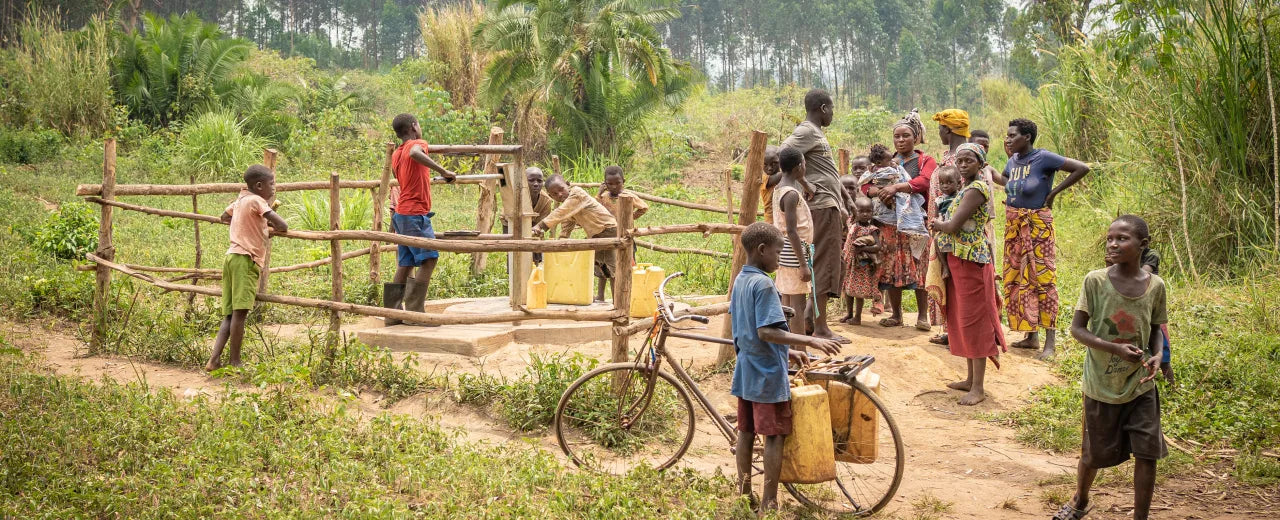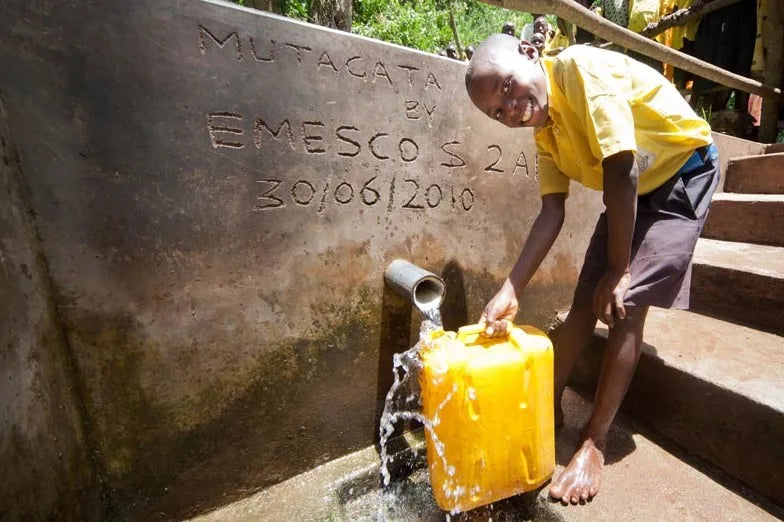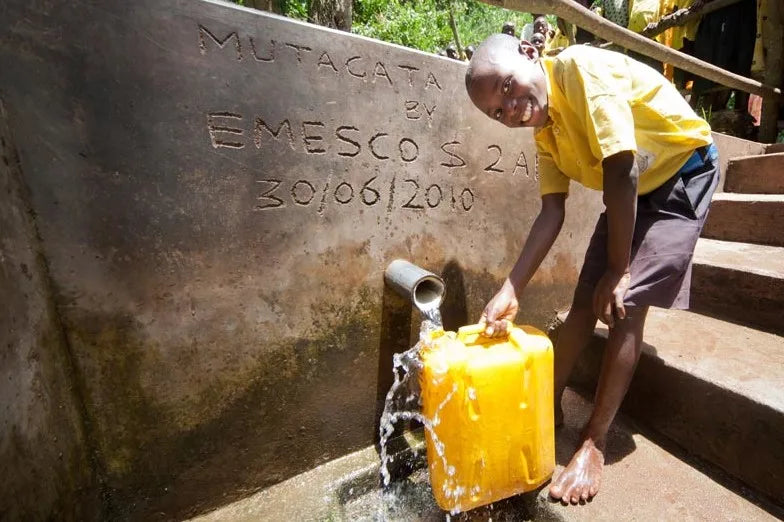Day 22
6 months access to clean drinking water for a child in Uganda
 Clean water for a clear future Clean water for a clear future
Clean water for a clear future Clean water for a clear future


Creating a foundation for education, health and income

Nicola Winter presents her favorite project
need
Access to clean water, sanitation and hygiene training for children and their families in Uganda
activity
Wells, tanks and latrines are being built at schools in the Kibaale District in Uganda and students are being trained in hygiene and water management
Measurable performance
Number of children who have access to clean water and learn safe water and hygiene practices
Result
More students are supplied with fresh water in their everyday lives; hygiene-related illnesses and the associated absences from school are declining sharply
Systemically relevant impact
Water is available in sufficient quantities and ensures long-term improvements in health, more school graduations and a better economic situation for the communities
background


The good deed
About Uganda
Kampala
Capital city
47,249,585
Population
964.2
Gross domestic product
per capita per year
0.525
Human Development Index
(Human Development Index)



